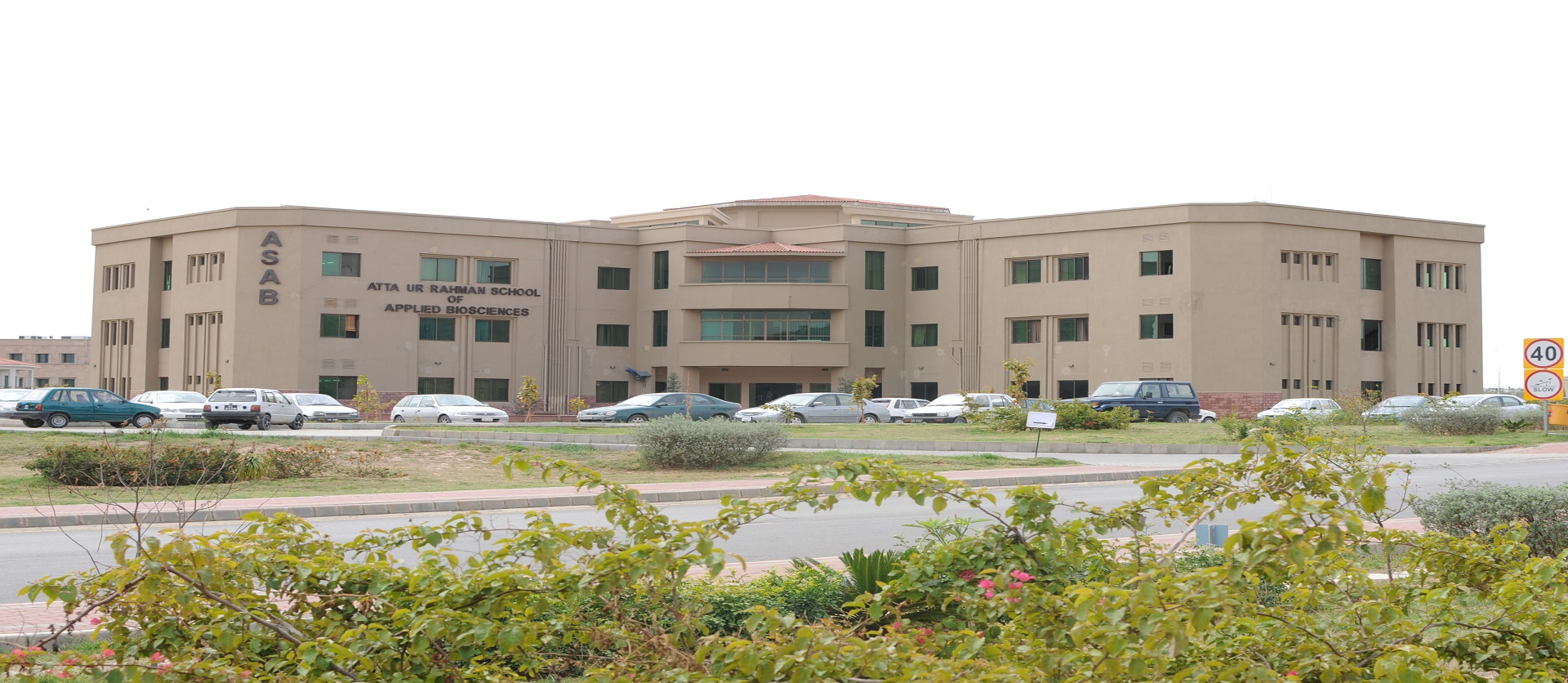About ASAB
Biotechnology is the economic exploitation of our knowledge of biological systems and their parts. The biotechnology sector is fast-moving, often at the frontiers of science, thus needs imaginative and capable biotechnologists and life scientists. This school is intended for those who have a life science background and wish to develop their interest and skills to do research in a biotechnology company. Atta-ur-Rahman School of Applied Biosciences (ASAB) is the home of Pakistan's largest biotech cluster. This pool of expertise is an invaluable resource, enabling students to access all sorts of different biotechnological skills. As a strategic unit located within NUST, ASAB boasts state-of-the-art teaching and research. The school is unique in establishing expertise across a broad range of biotechnology, thereby encouraging innovative approaches to teaching and research. Our areas of expertise include health-care biotechnology, industrial biotechnology, and plant biotechnology. The institute provides excellent research and teaching facilities in the field of applied biology in Pakistan. ASAB has dynamic interdisciplinary undergraduate and graduate programs which prepare the students for pursuits in research and teaching in pure molecular as well as applied biology. The faculty includes members of Health, Plant and Industrial Biotechnology, Virology, Molecular Biology, Plant Biology, Biochemistry, Medicine, Neurology, Rheumatology, Immunology and Oncology. The research and training programs have research collaborations with other institutions in Pakistan and abroad.
PRINCIPAL'S MESSAGE
Professor Dr. Muhammad Asghar
With immense pleasure and pride I welcome you to Atta-ur-Rahman School of Applied Biosciences (ASAB). You are joining an institution that prides itself in teaching excellence and interdisciplinary translational research led by Ph.D. qualified faculty members from leading institutions around the world. Faculty members and staff at this school aim to ensure that, from the outset, your experience here be of the highest quality. We offer a dynamic curriculum to develop a clear understanding of biotechnological innovation, including cell and molecular biology, immunology, virology, proteomics, genomics, systems and synthetic biology, neurobiology, food technology, plant sciences, sustainable agriculture and nanotechnology. Our students also gain experience in experimental and case study design, scientific data analysis, writing and communication, ethical practices,
Read More


